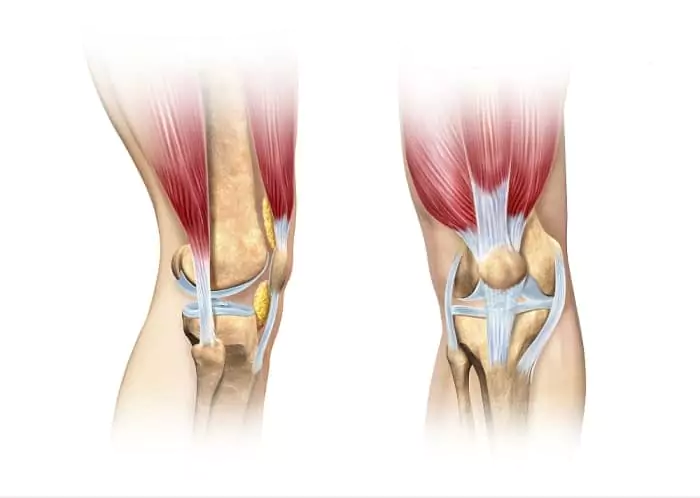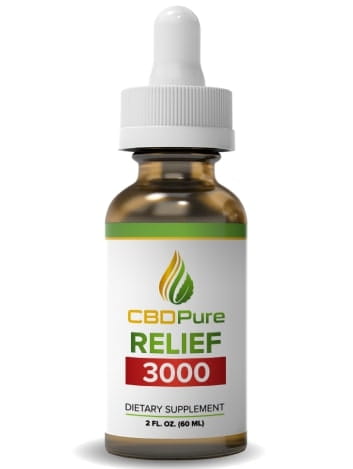CBD vs NSAIDs for Tendonitis: Tendonitis is a condition that occurs when the tendons become inflamed, causing pain and discomfort. It can affect any tendon in the body, but it is most common in the elbow, wrist, shoulder, knee, and ankle. There are many different treatments available for tendonitis, but two of the most popular options are CBD and NSAIDs. Both of these treatments are effective in managing the symptoms of tendonitis, but they work in different ways. In this article, we will compare CBD vs NSAIDs for tendonitis to help you decide which one is best for you.
Table of Contents
Tendonitis is a common condition that causes pain and inflammation in the tendons. CBD and NSAIDs are two popular options for managing the symptoms of tendonitis. But which one is better? Read on to find out.

CBD vs NSAIDs for Tendonitis: The Comparison
CBD and NSAIDs both have anti-inflammatory properties, which makes them effective in managing the symptoms of tendonitis. However, they work in different ways and have different side effects.
CBD:
CBD, or cannabidiol, is a compound found in the cannabis plant. It is known for its anti-inflammatory and pain-relieving properties, which makes it an effective treatment option for tendonitis.
CBD works by interacting with the body’s endocannabinoid system (ECS). The endocannabinoid system is a complex system of receptors and neurotransmitters that helps regulate many different bodily functions, including pain and inflammation. When you take CBD, it interacts with the endocannabinoid system to help reduce inflammation and alleviate pain.
One of the biggest advantages of CBD is that it is a natural and safe treatment option. Unlike NSAIDs, which can have negative side effects such as stomach ulcers and liver damage, CBD has very few side effects. The most common side effects of CBD are drowsiness and dry mouth, which are mild and usually go away on their own.

NSAIDs:
NSAIDs, or nonsteroidal anti-inflammatory drugs, are a class of drugs that are commonly used to treat pain and inflammation. They work by blocking the production of prostaglandins, which are chemicals that cause inflammation.
NSAIDs are effective in managing the symptoms of tendonitis, but they can have negative side effects. The most common side effects of NSAIDs are stomach ulcers, bleeding, and liver damage. Long-term use of NSAIDs can also increase the risk of heart attack and stroke.
CBD vs NSAIDs for Tendonitis: Pros and Cons
To help you decide which treatment option is best for you, we have compiled a list of the pros and cons of CBD vs NSAIDs for tendonitis.
CBD Pros:
- Natural and safe treatment option
- Few side effects
- Effective in reducing inflammation and pain
CBD Cons:
- May cause drowsiness
- Takes longer to take effect than NSAIDs
NSAIDs Pros:
- Effective in managing pain and inflammation
- Fast-acting
NSAIDs Cons:
- Can have negative side effects
- Long-term use can increase the risk of heart attack and stroke
CBD vs NSAIDs for Tendonitis: FAQs
Q: Is CBD legal?
A: Yes, CBD is legal in most countries, including the United States. However, the legality of CBD can vary depending on the source of the CBD and the laws of the country or state you are in.
Q: Can CBD get you high?
A: No, CBD is not psychoactive and does not produce a “high” like THC, another compound found in the cannabis plant.
Q: How long does it take for CBD to work?
A: The effects of CBD can vary depending on the individual and the method of consumption. Generally, it can take anywhere from 30 minutes to 2 hours for CBD to take effect when consumed orally, and the effects can last for several hours.
Q: Can NSAIDs be used for long-term treatment?
A: Long-term use of NSAIDs can have negative side effects and increase the risk of heart attack and stroke. It is best to use NSAIDs for short-term treatment only and to talk to your doctor about alternative treatment options for long-term management of tendonitis.
Q: Are there any drug interactions with CBD?
A: Yes, CBD can interact with some medications, including blood thinners, anti-seizure drugs, and certain antidepressants. It’s important to talk to your doctor before using CBD if you are taking any medications.
CBD vs NSAIDs for Tendonitis: Conclusion
CBD and NSAIDs are both effective treatment options for managing the symptoms of tendonitis. CBD is a natural and safe treatment option that has few side effects, while NSAIDs are fast-acting but can have negative side effects with long-term use. Ultimately, the choice between CBD vs NSAIDs for tendonitis will depend on your personal preference and the advice of your doctor. It is important to weigh the pros and cons of each treatment option before making a decision.

[…] be effective, they may also come with several side effects. For instance, medication used to treat tendonitis, such as nonsteroidal anti-inflammatory drugs (NSAIDs), can cause stomach ulcers, high blood […]